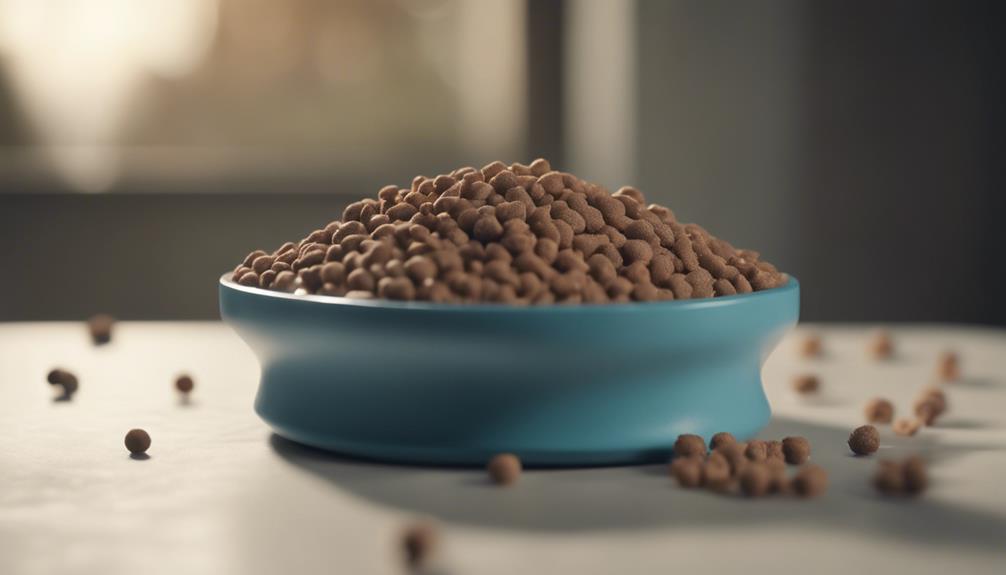In the realm of canine health, dietary considerations play a pivotal role in addressing gastrointestinal distress. When a dog experiences an upset stomach, discerning the appropriate nourishment becomes paramount. Vets advocate for specific feeding regimens that aim to alleviate discomfort and promote digestive healing.
Understanding the underlying causes of gastric disturbances in dogs is crucial for tailoring dietary interventions effectively. This article delves into the nuances of feeding a dog with an upset stomach, elucidating the rationale behind bland diets and commercial options endorsed by veterinary professionals.
By adhering to the guidance provided by veterinarians, pet owners can navigate the intricacies of implementing a suitable diet to aid in their dog's recovery process. Stay informed as we unravel the recommended dietary strategies for nurturing a dog back to gastrointestinal equilibrium during bouts of digestive upset.
Key Takeaways
- Bland diets like boiled rice and chicken are recommended for dogs with upset stomachs.
- Specific commercial bland dog foods such as Hills Prescription Diet i/d are beneficial.
- Transition back to regular food gradually after following the vet's bland diet plan.
- Bland diets are crucial post-surgery or for dogs with sensitive stomachs; consult a vet for tailored advice.
Common Causes of Dog Upset Stomach
There are several common causes of upset stomach in dogs that range from mild reactions like eating too quickly to more severe conditions such as gastroenteritis or pancreatitis. Mild reactions can often be attributed to dietary indiscretions, such as eating garbage or consuming rich, fatty foods. Food allergies or intolerances can also lead to gastrointestinal upset in dogs.
Parasites like worms or protozoa may cause digestive disturbances, resulting in vomiting or diarrhea. Infections, whether bacterial, viral, or fungal, can inflame the gastrointestinal tract, causing discomfort for the dog. Additionally, stress and anxiety can manifest physically in dogs, leading to symptoms of an upset stomach.
Proper identification of the cause is essential for effective treatment and management of the dog's gastrointestinal issues.
Benefits of Bland Diet for Dogs
To effectively manage gastrointestinal issues in dogs, implementing a bland diet offers numerous benefits that aid in soothing and supporting the digestive system. A bland diet consists of easily digestible foods like boiled white rice and unseasoned chicken breast, which are gentle on the stomach. The benefits of a bland diet for dogs include:
| Benefits | Description |
|---|---|
| Easy Digestion | Helps ease the digestive process for dogs with upset stomachs. |
| Soothes Irritation | Gentle on the stomach lining, reducing irritation and discomfort. |
| Provides Nutrients | Offers essential nutrients while being mild on the digestive system. |
| Supports Recovery | Aids in the recovery process by giving the digestive system a rest. |
| Hydration Assistance | Can help maintain hydration levels, especially if the dog is avoiding water. |
Recommended Ingredients for Bland Diet

When considering a bland diet for dogs with upset stomachs, selecting appropriate ingredients is crucial for promoting digestive comfort and recovery. Typical ingredients for a bland diet include boiled white rice and unseasoned chicken breast, known for their gentle nature on the digestive system.
Additionally, alternatives such as boiled potato, turkey, or lean ground beef can provide necessary carbohydrates and lean protein. These ingredients are easy to digest and help in reducing gastrointestinal distress.
Some vets may also recommend incorporating foods like cottage cheese, egg whites, canned pumpkin, or bone broth to further aid in the recovery process. Ensuring the right balance of these ingredients is essential to support your dog's digestive health during this sensitive time.
Top Commercial Bland Dog Foods
For pet owners seeking convenient options to aid their dogs' upset stomachs, exploring the realm of top commercial bland dog foods can provide a feasible solution for supporting their pets' digestive health.
When considering commercial bland dog foods, some top options to explore include:
- Hills Prescription Diet i/d
- Purina EN Gastroenteric
- Royal Canin Veterinary Diet Gastrointestinal dog food
- Specific dog foods designed to be gentle on the stomach
These recommended brands offer convenience and assurance, as they are specifically formulated to be easy on the digestive system. Consultation with a vet can help determine the best commercial bland diet option for your dog's individual needs.
Steps to Implement a Bland Diet

Implementing a bland diet for a dog with an upset stomach involves careful planning and adherence to veterinary guidance. When transitioning your dog to a bland diet, it is essential to follow specific steps to ensure their digestive system can recover effectively. Below is a table outlining the steps to implement a bland diet for your furry companion:
| Steps to Implement a Bland Diet |
|---|
| 1. Consult your vet for guidance |
| 2. Prepare bland diet foods as instructed |
| 3. Serve meals in appropriate portions |
| 4. Monitor your dog's reactions |
Bland Diet Considerations for Special Cases
In specific instances, tailored bland diets play a crucial role in addressing unique dietary needs for dogs with special conditions. When considering special cases for bland diets, the following factors should be taken into account:
- Post-Surgery Recovery: Bland diets can aid in the recovery process post-surgery due to reduced appetite and slowed gastrointestinal motility.
- Food Allergies: Consult a vet for hypoallergenic dog food options if your dog has food allergies.
- Sensitive Stomachs: Identify the underlying cause of sensitivity and collaborate with a vet or nutritionist to design an appropriate eating plan.
- Chronic Health Conditions: For dogs with chronic health conditions, customized bland diets may be necessary to manage their specific needs.
Transitioning Back to Regular Food

After a period of following a bland diet to soothe your dog's upset stomach, the gradual transition back to regular food is a crucial step in ensuring their digestive system adjusts smoothly. It is recommended to introduce their regular diet slowly over a span of 5 days to prevent any reoccurrence of gastrointestinal upset. Below is a helpful table to guide you through the transitioning process:
| Day | Meal |
|---|---|
| Day 1 | 75% Bland Diet + 25% Regular |
| Day 2 | 50% Bland Diet + 50% Regular |
| Day 3 | 25% Bland Diet + 75% Regular |
| Day 4 | Regular Diet |
Ensure your dog's stool remains firm and consistent throughout the transition. If any issues arise, consult your vet for guidance.
Conclusion
In conclusion, adhering to the recommended dietary strategies for dogs with upset stomachs is crucial for promoting digestive healing and alleviating discomfort.
By understanding the common causes of gastric disturbances, implementing a bland diet with recommended ingredients, and transitioning back to regular food gradually, pet owners can effectively nurture their dogs back to gastrointestinal equilibrium.
Veterinary professionals endorse these approaches to aid in the recovery process and support overall health and well-being.




